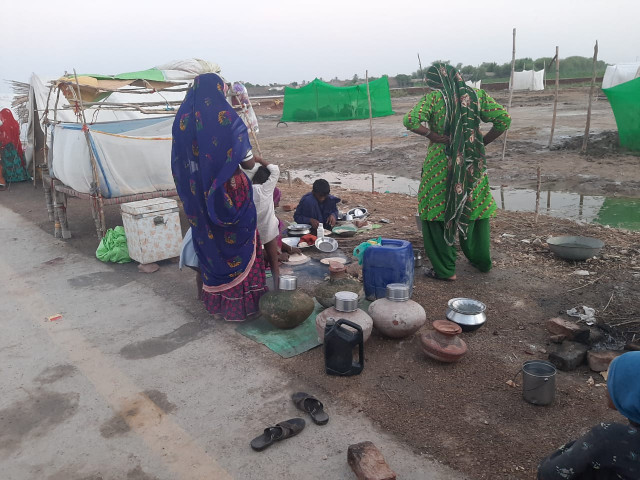Sindh’s vision lags behind modern demands
As many as 108 women were killed in the name of Karo-Kari in Sindh during 2019 — Human Rights Commission of Pakistan

Despite taking several measures to provide social protection and relief to the women of Sindh, the provincial government still has to accomplish much. These measures range from making legislation, setting up relevant government bodies and launching projects with investment worth millions.
The reasons behind slow progress in gender equality are lack of implementation of relevant laws, male dominance in women-specific government institutions and mismanagement of funds earmarked for administrative affairs.
Several women-specific provincial bodies apart in addition to Sindh Women Development Department are functioning and are allocated large funds. In addition departments like Planning and Development also manage projects for women.
Women Development Department’s administrative expenses during the current financial year are over Rs348 million. Documents revealed that Rs148 million are employee-related expenses including allowances.
According to department statistics 72 percent of total employees are male. Thus women employees in the department constitute only 28 percent. According to the Finance Department over Rs122 million is earmarked for employees’ salaries working in Karachi, most of whom, are males.
The department has set up development complexes in different districts “to address the needs of the area women. The schemes approved for Sukkur, Shaheed Benazirabad, Sanghar, and Karachi were scheduled to be completed by June 2020, but none were for different reasons.
The department officials informed the Sindh Assembly recently that it had set up women complaint cells in divisional headquarters to “provide protection to women in distress/crisis and render basic legal, medical and counselling services to needy women”. Yet dozens of women continue to be killed under Karo-Kari (honour killing) every year in Sindh.
According to Human Rights Commission of Pakistan, 108 women were killed in Karo-Kari (honour killing) in Sindh during 2019 and in most of the cases, no legal proceedings were initiated. “Of the cases that were initiated, more than 90 percent are pending trial for different reasons. In most cases police have not completed its investigation,” the HRCP reported.
Similarly, in most cases of violence and other crimes committed against women in Sindh no legal action was taken. According to the HRCP report, the Sindh Ombudsman said before the Supreme Court that 388 cases of harassment of women at workplaces were filed but “action had been taken in only eight cases”.
Vice Chairperson HRCP Sindh, Qazi Khizar, told The Express Tribune that Sindh had made commendable legislation pertaining to women rights compared to other provinces but it was lacking in implementation. He said Sindh Assembly had made important legislation in 2019 under which women working in the agriculture sector for the first time were recognised as formal labourers.
Sindh Minister for Women Development Department, Shehla Raza admitted delay in the implementation of laws and completion of projects. Responding to the queries, she said: “The implementation of laws requires time,” she said adding that sensitising women about their rights and relevant laws was also necessary.
She also agreed that the ratio of women employees should be more than the male employees in the women-specific government bodies, saying that it is not possible because of merit criteria. “The women complaint cells at least should have 100 percent women employees,” she added.
Published in The Express Tribune, February 28th, 2021.



















COMMENTS
Comments are moderated and generally will be posted if they are on-topic and not abusive.
For more information, please see our Comments FAQ